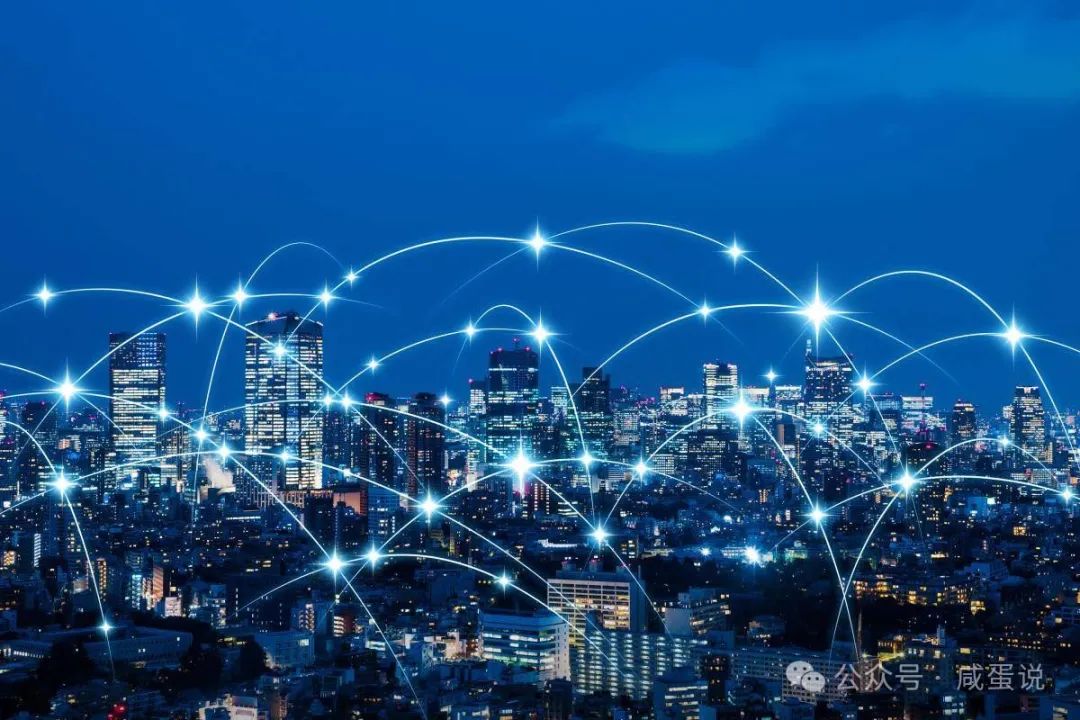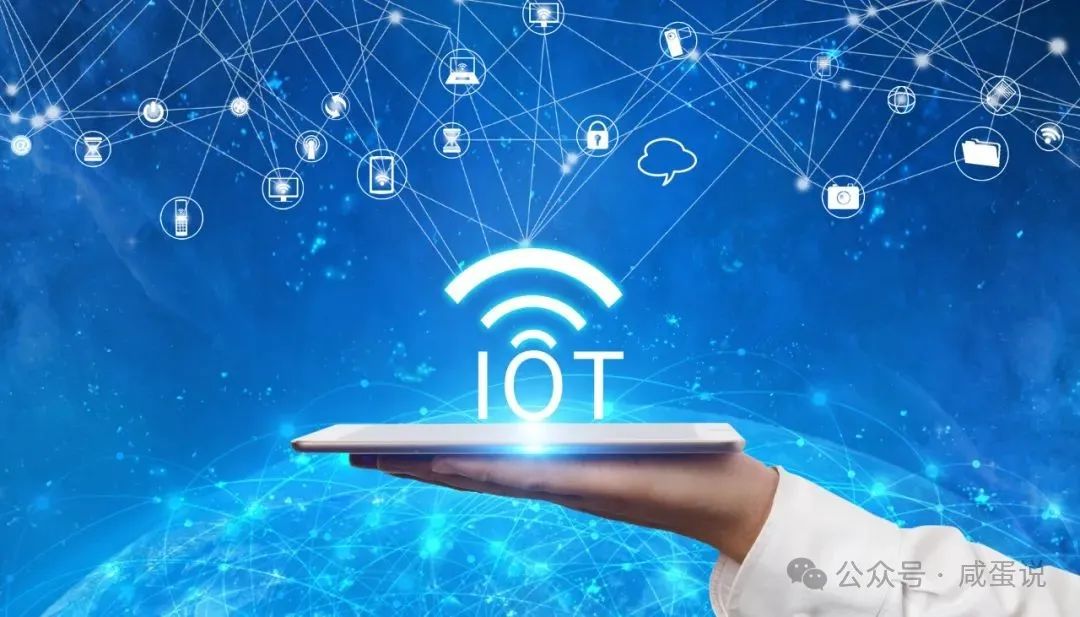Skip to content

Author: Xian Dan Ge Zheng Yong Liang
Tags: IoT technology, smart cities, urban management, future trends
With the rapid development of IoT technology, its application in the construction of smart cities is becoming increasingly widespread. IoT technology connects various devices and systems in cities, achieving real-time data collection, transmission, and processing, bringing revolutionary changes to urban management. This article discusses the background of IoT technology, explores its current applications in smart cities, analyzes its impact on improving urban management efficiency and service quality, and predicts future development trends.
 The Internet of Things (IoT) technology refers to a network that connects any object to the Internet for information exchange and communication through information sensing devices, such as RFID, infrared sensors, GPS, laser scanners, etc., to achieve intelligent identification, positioning, tracking, monitoring, and management. Since Professor Kevin Ashton of the Massachusetts Institute of Technology (MIT) first proposed the concept of IoT in 1999, IoT technology has undergone a leap from theory to practice and has become an important force driving the construction of smart cities.
The application of IoT technology in intelligent transportation has significantly improved the efficiency and safety of traffic management. By installing sensors on roads and vehicles, traffic management departments can monitor traffic flow, road conditions, and vehicle operation status in real-time, optimizing traffic signal control and reducing congestion and accidents. For example, the IoT-assisted traffic management system implemented in Shanghai uses IoT technology to achieve intelligent scheduling of traffic flow, effectively alleviating urban traffic pressure.
The application of IoT technology in energy management promotes efficient energy use and environmental protection. Smart grids utilize IoT technology for intelligent distribution and management of electricity, monitoring power demand in real-time, optimizing energy distribution, and reducing waste. At the same time, IoT technology can also be applied in smart home systems to control lighting, air conditioning, heating, etc., achieving intelligent energy management, improving living comfort, and saving energy.
The application of IoT technology in public safety enhances the city’s emergency response capabilities and disaster prevention levels. By deploying surveillance cameras, sensors, and other devices, combined with artificial intelligence image recognition technology, IoT systems can automatically detect suspicious behavior, fires, and other emergencies, promptly alerting and taking response measures. For example, many cities use smart monitoring systems that utilize IoT technology for public safety monitoring, effectively improving urban security levels.
The application of IoT technology in environmental monitoring provides timely and accurate environmental data support for environmental protection departments. By deploying air quality sensors, water quality sensors, and other devices throughout the city, IoT systems can monitor environmental indicators such as PM2.5 and water quality in real-time, providing scientific basis for government environmental protection policies. For example, Beijing uses IoT sensors in several cities to collect air quality data, assisting in the implementation of environmental protection projects.
IoT technology connects various devices and systems in cities, achieving real-time data collection, transmission, and processing, providing scientific basis for urban management. For instance, in waste management, intelligent waste management systems monitor the fill levels of waste containers using sensors, automatically scheduling garbage trucks for collection, significantly improving waste processing efficiency.
The application of IoT technology also enhances the quality of urban public services. In the medical field, IoT technology enables telemedicine, health monitoring, and other functions, providing residents with more convenient and efficient medical services. In the education field, IoT technology promotes the construction of smart campuses, improving the sharing and utilization efficiency of educational resources.
With the rapid development of technologies such as 5G, artificial intelligence, and big data, IoT technology will deeply integrate with other new technologies, promoting further upgrades in smart city construction. For example, the high speed and low latency characteristics of 5G technology will provide more stable network connections for IoT devices, facilitating the realization of more application scenarios.
To promote the widespread application of IoT technology in smart cities, it is necessary to strengthen the formulation and unification of technical standards, promoting interoperability among different manufacturers and devices. This will help break down information silos, achieving interconnection and sharing of data.
As IoT devices become more prevalent, issues of data security and privacy protection are becoming increasingly prominent. In the future, it is necessary to establish and improve data security and privacy protection mechanisms, employing advanced encryption technologies and access control strategies to ensure the secure transmission and storage of data.
IoT technology will assist in the sustainable development of cities by improving resource utilization efficiency and reducing environmental pollution through intelligent management and control. For example, in energy management, IoT technology will promote the integration and utilization of renewable energy, driving green and low-carbon development.
IoT technology is a crucial support for the construction of smart cities, and its applications in intelligent transportation, energy management, public safety, and environmental monitoring significantly improve urban management efficiency and service quality. With the continuous advancement of technology and the expansion of application scenarios, IoT technology will play an increasingly important role in smart city construction. In the future, we need to strengthen the formulation of technical standards, ensure data security and privacy, and promote sustainable development to fully leverage the potential of IoT technology, creating a more convenient, efficient, and sustainable living environment for urban residents.
By deeply analyzing the current status and future trends of IoT technology in smart cities, we can see that IoT technology is gradually changing our urban lives. As industry analysts, we look forward to continuous innovation and development of IoT technology, injecting new vitality into the construction of smart cities. At the same time, we also call on governments, enterprises, and research institutions to strengthen cooperation to jointly promote the popularization and application of IoT technology, contributing to the realization of the beautiful vision of smart cities.
Basic information is sourced from the internet, organized by Xian Dan Ge Studio
The full text is complete. Thank you for your patience in reading, please feel free to click “See”~
“Xian Dan Says” business areas: audit services, corporate management services, FA services.
If you have further questions, please search for “Xian Dan Ge” in Tencent Yuanbao’s intelligent body, and let Xian Dan Ge serve you personally.
The Internet of Things (IoT) technology refers to a network that connects any object to the Internet for information exchange and communication through information sensing devices, such as RFID, infrared sensors, GPS, laser scanners, etc., to achieve intelligent identification, positioning, tracking, monitoring, and management. Since Professor Kevin Ashton of the Massachusetts Institute of Technology (MIT) first proposed the concept of IoT in 1999, IoT technology has undergone a leap from theory to practice and has become an important force driving the construction of smart cities.
The application of IoT technology in intelligent transportation has significantly improved the efficiency and safety of traffic management. By installing sensors on roads and vehicles, traffic management departments can monitor traffic flow, road conditions, and vehicle operation status in real-time, optimizing traffic signal control and reducing congestion and accidents. For example, the IoT-assisted traffic management system implemented in Shanghai uses IoT technology to achieve intelligent scheduling of traffic flow, effectively alleviating urban traffic pressure.
The application of IoT technology in energy management promotes efficient energy use and environmental protection. Smart grids utilize IoT technology for intelligent distribution and management of electricity, monitoring power demand in real-time, optimizing energy distribution, and reducing waste. At the same time, IoT technology can also be applied in smart home systems to control lighting, air conditioning, heating, etc., achieving intelligent energy management, improving living comfort, and saving energy.
The application of IoT technology in public safety enhances the city’s emergency response capabilities and disaster prevention levels. By deploying surveillance cameras, sensors, and other devices, combined with artificial intelligence image recognition technology, IoT systems can automatically detect suspicious behavior, fires, and other emergencies, promptly alerting and taking response measures. For example, many cities use smart monitoring systems that utilize IoT technology for public safety monitoring, effectively improving urban security levels.
The application of IoT technology in environmental monitoring provides timely and accurate environmental data support for environmental protection departments. By deploying air quality sensors, water quality sensors, and other devices throughout the city, IoT systems can monitor environmental indicators such as PM2.5 and water quality in real-time, providing scientific basis for government environmental protection policies. For example, Beijing uses IoT sensors in several cities to collect air quality data, assisting in the implementation of environmental protection projects.
IoT technology connects various devices and systems in cities, achieving real-time data collection, transmission, and processing, providing scientific basis for urban management. For instance, in waste management, intelligent waste management systems monitor the fill levels of waste containers using sensors, automatically scheduling garbage trucks for collection, significantly improving waste processing efficiency.
The application of IoT technology also enhances the quality of urban public services. In the medical field, IoT technology enables telemedicine, health monitoring, and other functions, providing residents with more convenient and efficient medical services. In the education field, IoT technology promotes the construction of smart campuses, improving the sharing and utilization efficiency of educational resources.
With the rapid development of technologies such as 5G, artificial intelligence, and big data, IoT technology will deeply integrate with other new technologies, promoting further upgrades in smart city construction. For example, the high speed and low latency characteristics of 5G technology will provide more stable network connections for IoT devices, facilitating the realization of more application scenarios.
To promote the widespread application of IoT technology in smart cities, it is necessary to strengthen the formulation and unification of technical standards, promoting interoperability among different manufacturers and devices. This will help break down information silos, achieving interconnection and sharing of data.
As IoT devices become more prevalent, issues of data security and privacy protection are becoming increasingly prominent. In the future, it is necessary to establish and improve data security and privacy protection mechanisms, employing advanced encryption technologies and access control strategies to ensure the secure transmission and storage of data.
IoT technology will assist in the sustainable development of cities by improving resource utilization efficiency and reducing environmental pollution through intelligent management and control. For example, in energy management, IoT technology will promote the integration and utilization of renewable energy, driving green and low-carbon development.
IoT technology is a crucial support for the construction of smart cities, and its applications in intelligent transportation, energy management, public safety, and environmental monitoring significantly improve urban management efficiency and service quality. With the continuous advancement of technology and the expansion of application scenarios, IoT technology will play an increasingly important role in smart city construction. In the future, we need to strengthen the formulation of technical standards, ensure data security and privacy, and promote sustainable development to fully leverage the potential of IoT technology, creating a more convenient, efficient, and sustainable living environment for urban residents.
By deeply analyzing the current status and future trends of IoT technology in smart cities, we can see that IoT technology is gradually changing our urban lives. As industry analysts, we look forward to continuous innovation and development of IoT technology, injecting new vitality into the construction of smart cities. At the same time, we also call on governments, enterprises, and research institutions to strengthen cooperation to jointly promote the popularization and application of IoT technology, contributing to the realization of the beautiful vision of smart cities.
Basic information is sourced from the internet, organized by Xian Dan Ge Studio
The full text is complete. Thank you for your patience in reading, please feel free to click “See”~
“Xian Dan Says” business areas: audit services, corporate management services, FA services.
If you have further questions, please search for “Xian Dan Ge” in Tencent Yuanbao’s intelligent body, and let Xian Dan Ge serve you personally.





